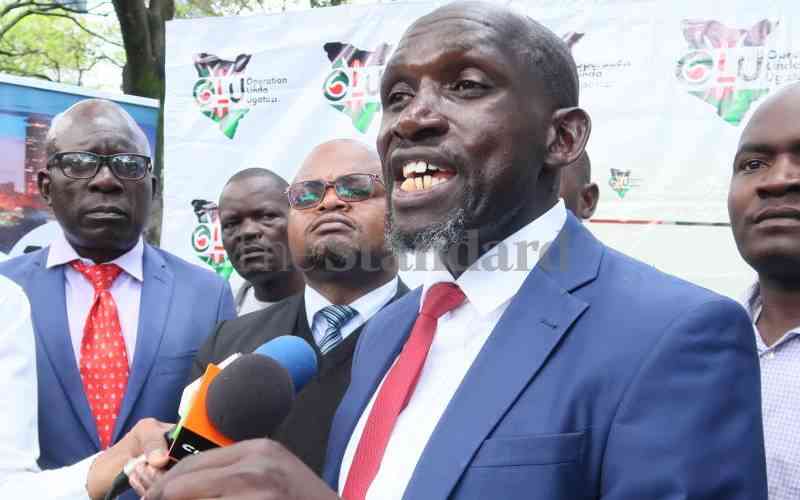The filing of the application for summons against the 'Ocampo Six' has definitely sent reverberations into the volatile political scene in ways hitherto unimagined.
The list was surprising both in who it included and who it left out. Other than names that had been part of public discourse for as long as the list was anticipated, Chief Prosecutor Luis Moreno-Ocampo produced some surprises.
The big surprise was Kenya’s ultimate diplomat, Francis Muthaura. Anyone who has watched Mr Muthaura’s public life will admit shock at his inclusion on a list that puts him together with Charles Taylor and Jean Pierre Bemba. All we can do is wait for the evidence on which the prosecutor based his surprising decision.
On the other side of the score is diminutive Joshua arap Sang, who though a celeb in Kalenjin land is hardly known outside Kass FM. Rarely has a mere radio broadcaster been held responsible for such damning offences. Again, we can only wait and see what evidence Mr Ocampo has.
I have no desire to wade in the murky waters of the regional spread of the Ocampo Six. I will accept in good faith prosecutor Ocampo’s oft-repeated promise that he is not influenced by politics but by evidence. Unfortunately, these prosecutions arise out of political occurrences. And Ocampo is fond of connecting local politics to the prosecutions, talking of balancing between PNU and ODM and always making reference to the elections of 2012. It is therefore critical for the ICC to navigate political dynamics carefully if faith in the non-partiality of the process is to be sustained. Dismissing complaints off hand would be foolhardy. Any appearance or perception of bias would be prejudicial to the process.
If during the hearings it appears the prosecutor based his charges on rumours and roadside evidence, if it appears that there were some against whom he preferred to look the other way, the process will be so tainted that even those who committed crimes against humanity will be heronised. This would be an affront to the victims, for whom this is ultimately about.
But the merits or demerits of the charges notwithstanding, we must disabuse ourselves of the notion that the ICC will fully sort out Kenya’s perennial ethnic based violence. Prosecutions are important in reducing impunity which otherwise creates the environment for repeated acts of aggression. But prosecutions, especially when they target only a few, can only achieve so much. Kenya must of necessity form a local tribunal to try the second tier of offenders and any first tier of offenders who may have escaped the Ocampo net. But ultimately sustainable peace comes when underlying factors that legitimised the violence are resolved. The beauty for Kenya is that proper implementation of the new constitution can resolve many of these issues.
Even as the temperatures continue to rise due to the Ocampo Six, we must not torpedo the implementation process. It is only in investing in it that we will restore Kenya’s dignity and ensure lasting peace.
The writer is an Advocate of the High Court
 The Standard Group Plc is a
multi-media organization with investments in media platforms spanning newspaper
print operations, television, radio broadcasting, digital and online services. The
Standard Group is recognized as a leading multi-media house in Kenya with a key
influence in matters of national and international interest.
The Standard Group Plc is a
multi-media organization with investments in media platforms spanning newspaper
print operations, television, radio broadcasting, digital and online services. The
Standard Group is recognized as a leading multi-media house in Kenya with a key
influence in matters of national and international interest.
 The Standard Group Plc is a
multi-media organization with investments in media platforms spanning newspaper
print operations, television, radio broadcasting, digital and online services. The
Standard Group is recognized as a leading multi-media house in Kenya with a key
influence in matters of national and international interest.
The Standard Group Plc is a
multi-media organization with investments in media platforms spanning newspaper
print operations, television, radio broadcasting, digital and online services. The
Standard Group is recognized as a leading multi-media house in Kenya with a key
influence in matters of national and international interest.






